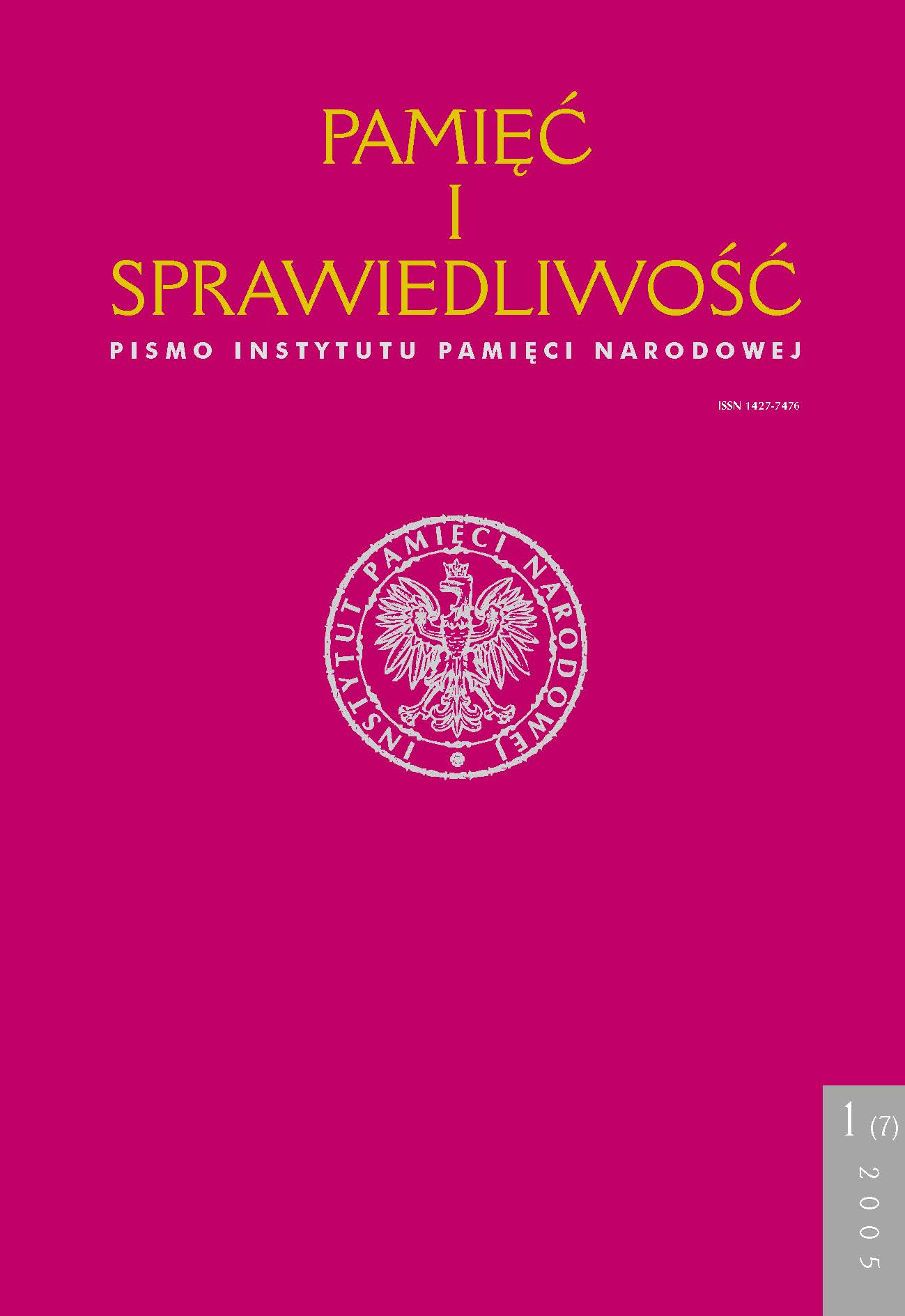Członkowie Związku Młodzieży Polskiej w województwie lubelskim wobec Kościoła katolickiego – przyczynek do dziejów mentalności młodzieży
Pamięć i Sprawiedliwość, Bd. 7 Nr. 1 (2005), pages: 71-97
Publication date: 2005-06-30
Abstract
One of the missions the communists set themselves was to change the outlook of the young Poles. One of the ways they wanted to do this was by eliminating the influence of the Catholic Church on them and trying to secularise them. The main role in the implementing of this plan was to be played by the Union of Polish Youth (ZMP) created in 1948, the only official youth organisation at the time. The aim of the article is to show whether in the years 1948–1956 the members of the Union changed their attitude towards the Catholic Church and if the possible change was a result of the ideological activity of their organisation. This problem has been discussed based on the behaviour of the youth
in the Lublin province (województwo), where the majority consisted of a rural population which was strongly attached to Catholicism.
The first part of the article describes the members of the Union’s behaviour, which show their attachment to the Catholic Church. It presents, among others, their participation in the events of “Lublin miracle” in 1949. The Union activists participated in retreats,
Masses and received Sacraments. They participated in religion lessons organised in school and in Church. They would defend the priests teaching them religion, who were being removed from the school. Some of them would belong to Catholic youth organisations at the same time. On the other hand there was the behaviour of another part of the Union, of those who had already gone through the mental transformation. They demanded the removal of religion from schools and removed crucifixes. Some co-operated with the security services, spying on catechists, teachers and classmates.
However, it needs to be said that changes in the mentality of particular members cannot be seen as an evolution of the collective outlook of this group. The majority remained believers and participated in religious life. They tried to combine the Union ideology with values taken from the family home. Despite the hopes of the United Polish Workers’ Party (PZPR) and the Union of Polish Youth there were no mass conversions to Marxism-Leninism.
In 1956, when it was possible to drop out of the Union, many people from the Lublin
region were prepared to do so.
Am häufigsten gelesenen Artikel dieser/dieses Autor/in
- Jacek Wołoszyn, Dieter Pohl, Bogdan Musiał, [Recenzja] Dieter Pohl, Von der „Judenpolitik” zum Judenmord. Der Distrikt Lublin des Generalgouvernements 1939–1944, Verlag Peter Lang GmbH, Frankfurt am Main–Berlin–Bern–New York-Paris–Wien 1993, ss. 208 i Bogdan Musial, Deutsche Zivilverwaltung und Judenverfolgung im Generalgouvernement. Eine Fallstudie zum Distrikt Lublin 1939–1944, Verlag Harrassowitz, Wiesbaden 1999, ss. 435 , Pamięć i Sprawiedliwość: Bd. 6 Nr. 2 (2004)
- Jacek Wołoszyn, Konspiracja młodzieżowa na ziemiach polskich w latach 1944–1956 , Pamięć i Sprawiedliwość: Bd. 17 Nr. 1 (2011)
- Jacek Wołoszyn, Propagandowa rola procesów członków konspiracyjnych organizacji młodzieżowych w latach 1948–1956 , Pamięć i Sprawiedliwość: Bd. 43 Nr. 1 (2024)
- Jacek Wołoszyn, Reakcja prasy konspiracyjnej na wydarzenia w Zamojskiem z lat 1942–1943 , Pamięć i Sprawiedliwość: Bd. 2 Nr. 2 (2002)
- Jacek Wołoszyn, Współpraca Związku Młodzieży Polskiej z UB w realizacji planów „ofensywy ideologicznej” w środowiskach młodzieżowych w województwie lubelskim , Pamięć i Sprawiedliwość: Bd. 12 Nr. 1 (2008)
- Jacek Wołoszyn, „Ostra broń” – agentura celna. Tajni współpracownicy w więzieniach i aresztach śledczych w latach 1944–1956 , Pamięć i Sprawiedliwość: Bd. 16 Nr. 2 (2010)
- Jacek Wołoszyn, Udział organów bezpieczeństwa w akcji rekrutacji na studia w województwie lubelskim w latach 1947–1956 , Pamięć i Sprawiedliwość: Bd. 11 Nr. 1 (2007)
 Język Polski
Język Polski
 English
English
 Deutsch
Deutsch
 Français (France)
Français (France)
 Italiano
Italiano
 Русский
Русский


 PDF (Język Polski)
PDF (Język Polski)
